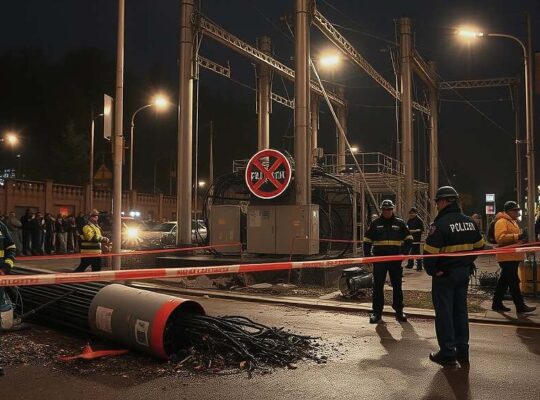The Federal Constitutional Court has delivered a significant verdict, upholding a constitutional complaint against a police action taken within a Berlin communal accommodation facility. The court’s ruling, announced Thursday, centers on a forceful entry into a resident’s room, undertaken without a judicial warrant, to facilitate deportation proceedings. The decision casts serious light on the legal boundaries of state power in executing immigration enforcement.
The complainant, subject to a deportation order, had been residing in the accommodation since 2019. Following repeated attempts to gain entry, police breached the door using a battering ram. A prior decision by the Berlin-Brandenburg Administrative Court had controversially determined that no search had occurred, thereby avoiding the need for judicial oversight. This ruling was subsequently upheld by the Federal Administrative Court, leading to the complainant’s appeal to the highest constitutional bench.
The Federal Constitutional Court decisively overturned the Berlin-Brandenburg Administrative Court’s judgment and remanded the case for reconsideration. The court’s reasoning underscored that a judicial warrant would have been necessary given the uncertainty surrounding the complainant’s whereabouts. Critically, the court concluded that Article 13 of the German Basic Law – guaranteeing procedural fairness and the right to a fair trial – had been violated. The court emphasized that the principle of preventative constitutional protection, ensuring the rights of individuals are safeguarded even before formal charges are levied, had been demonstrably undermined.
This ruling is likely to have far-reaching implications for immigration enforcement practices in Germany. Legal experts suggest it will require law enforcement agencies to rigorously adhere to judicial warrant requirements when conducting searches and accessing individuals within communal housing settings. The decision highlights a growing scrutiny of the state’s powers in immigration control and raises questions about the proportionality and legality of employing forceful measures when deporting individuals. The case (2 BvR 460/25) represents a powerful assertion of constitutional rights and a rebuke of practices perceived as an erosion of due process within the immigration system.












